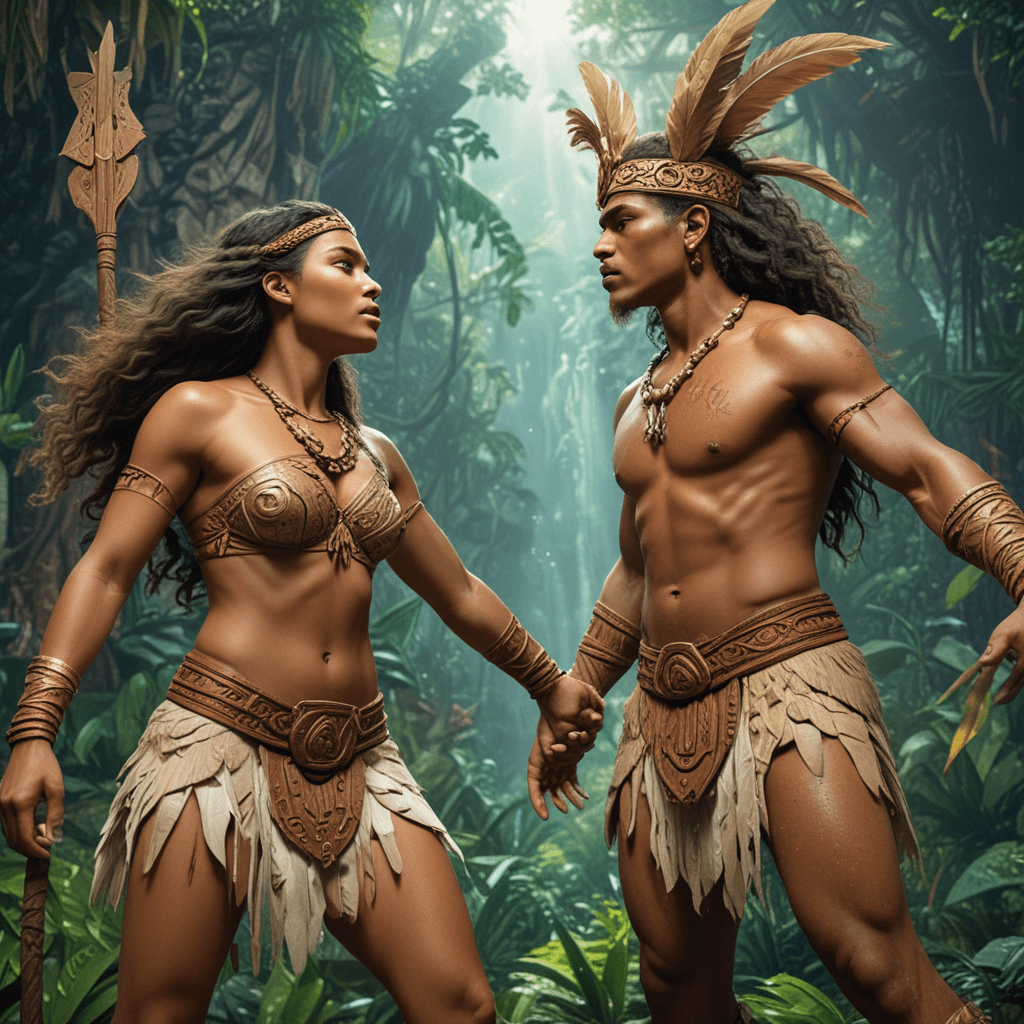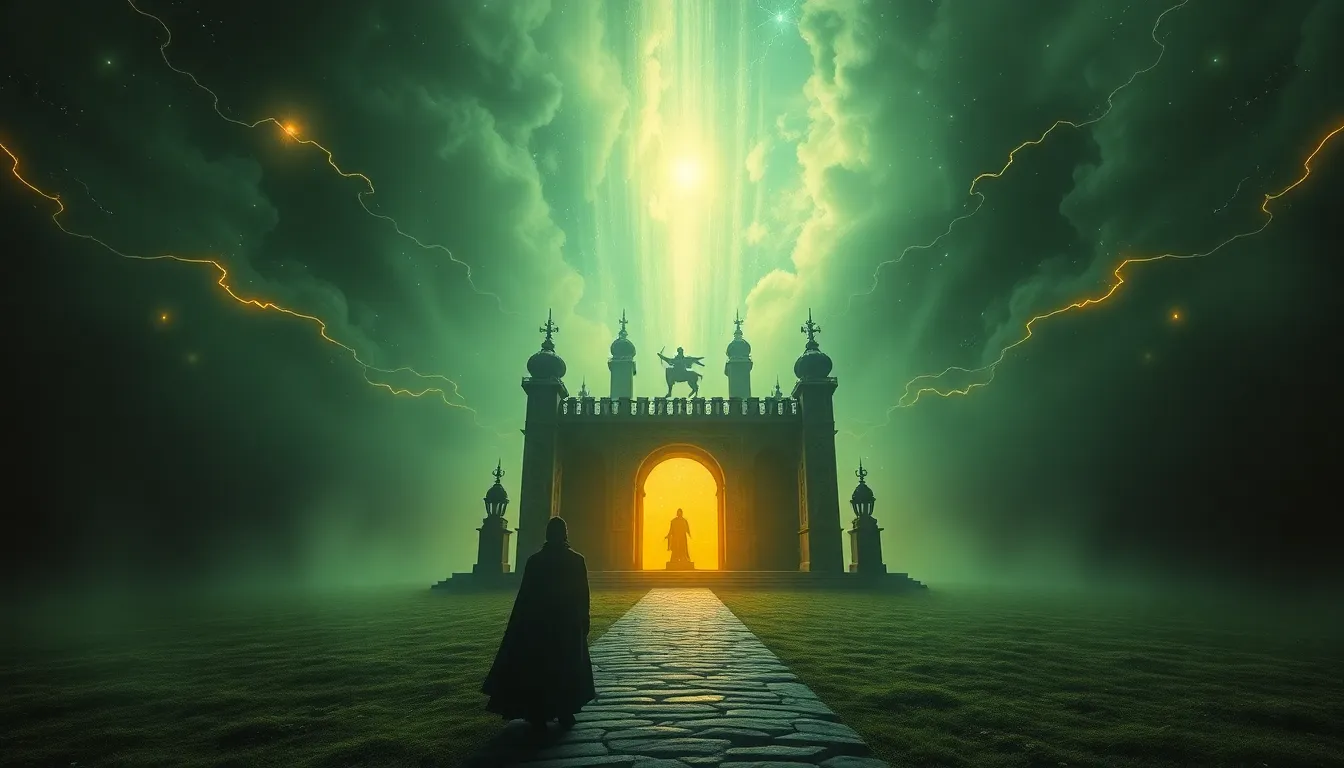The Chimera’s Cousin: Exploring the Peryton’s Place in Greek Mythology
I. Introduction to the Peryton
The Peryton is a fascinating creature from Greek mythology, often described as having the body of a deer and the wings of a bird. It is a hybrid beast that captures the imagination and symbolizes the merging of different elements of nature.
The significance of the Peryton in mythology extends beyond its physical description; it embodies themes of transformation and the complexities of existence. In this article, we will explore the origins, characteristics, myths, and cultural impact of the Peryton, alongside its relationship to the more well-known Chimera.
II. Origins of the Peryton in Greek Mythology
The Peryton’s origins can be traced back through various historical contexts and literary sources. Ancient texts that mention the Peryton often intertwine it with themes of nature and mysticism.
When compared to other mythological creatures such as the Griffin or the Minotaur, the Peryton holds a unique place due to its dual nature of being both terrestrial and aerial. This duality reflects the ancient Greeks’ fascination with the boundaries between the earth and the sky.
The Peryton first emerged in ancient texts, capturing the attention of scholars and storytellers alike. Its presence in these narratives often draws parallels to the struggles between the natural and supernatural worlds.
III. Physical Characteristics of the Peryton
The Peryton is depicted as a creature with the graceful body of a deer, complete with antlers, and large, majestic wings. This striking combination creates a vivid image of beauty and power.
Symbolically, the features of the Peryton represent various elements: the deer signifies grace and gentleness, while the wings evoke freedom and transcendence. This blend of characteristics reinforces the creature’s role as a bridge between the earthly realm and the skies.
When compared to the Chimera, which is a more fearsome and grotesque hybrid of lion, goat, and serpent, the Peryton offers a contrasting representation of hybrid creatures. While the Chimera embodies chaos and destruction, the Peryton leans towards the ethereal and poetic.
IV. The Peryton’s Role in Myths and Legends
The Peryton appears in several notable stories and legends within Greek mythology. One such tale involves the creature serving as a guide for lost souls, reflecting its dual nature as both a terrestrial and celestial being.
Interactions with gods and heroes are integral to the Peryton’s narrative. It is often portrayed as a test for heroes, challenging them to confront their fears and desires. The creature’s moral lessons emphasize themes of understanding and respect for the natural world.
- Guide for Lost Souls: The Peryton often leads those in despair towards enlightenment.
- Test of Character: Heroes encounter the Peryton as a challenge to their values and strengths.
- Symbol of Transformation: The creature embodies the journey of self-discovery and growth.
V. Cultural Impact and Legacy of the Peryton
The influence of the Peryton can be seen throughout history, particularly in art and literature. Artists have often depicted the creature in various forms, creating a rich tapestry of interpretations.
In modern adaptations, the Peryton has found a place in popular culture, appearing in fantasy novels, video games, and role-playing games. Its allure continues to captivate audiences, reminding us of the power of mythological beings.
Some examples of the Peryton’s cultural impact include:
- Depictions in Renaissance art as symbols of nature’s beauty.
- References in contemporary fantasy literature, often as noble creatures.
- Appearances in video games, where it serves as a mystical companion or foe.
VI. Comparative Analysis: Peryton vs. Chimera
While both the Peryton and the Chimera are hybrid creatures, they represent different aspects of mythology and symbolism. The Chimera often symbolizes chaos and destruction, while the Peryton leans towards themes of harmony and balance.
Similarities include their hybrid nature and their roles as challenges for heroes, but their symbolism diverges significantly:
- Hybrid Nature: Both creatures combine elements of different animals.
- Mythological Role: Each creature serves as a challenge or a test for heroes.
- Symbolism: The Chimera represents chaos, while the Peryton embodies harmony.
The importance of hybrid creatures in ancient cultures is evident as they often reflect the complexities of human existence and the natural world. The Peryton serves as a lesser-known counterpart to the Chimera, reminding us of the more nuanced aspects of mythological narratives.
VII. The Peryton in Modern Interpretations
In contemporary literature and media, the Peryton has seen a resurgence in interest. It appears in various works, often reimagined as a noble creature or a symbol of the mystical.
In fantasy and role-playing games, the Peryton is frequently depicted as a majestic beast, often serving as a companion, guardian, or formidable foe. This representation allows for diverse storytelling opportunities, further enhancing its legacy in popular culture.
As the Peryton evolves in identity, it continues to embody themes of transformation and the interplay between different realms of existence.
VIII. Conclusion
In summary, the Peryton occupies a unique and significant place in Greek mythology, serving as a symbol of the interconnectedness of nature and the supernatural. Its characteristics and legends offer profound insights into ancient cultural narratives.
Understanding mythological creatures like the Peryton enhances our appreciation for the complexities of human storytelling and the values embedded within these tales. The legacy of the Peryton, alongside its connection to the Chimera, reminds us of the rich tapestry of mythology that continues to inspire and captivate us today.



